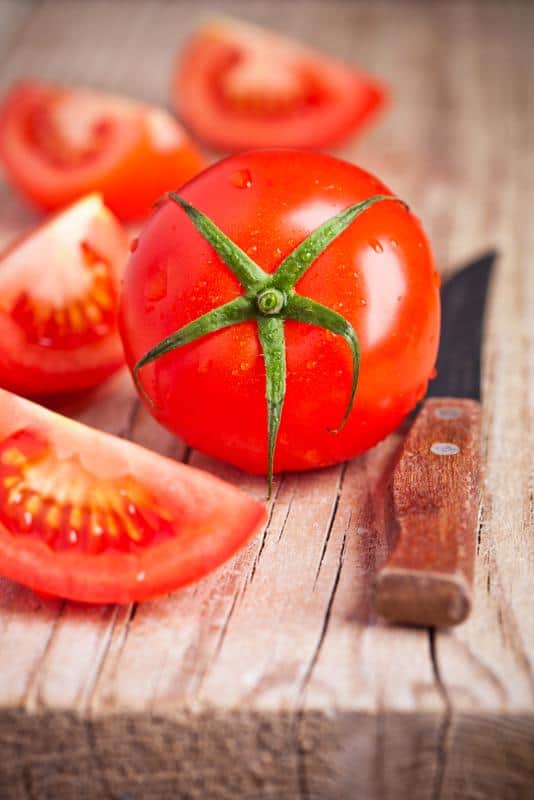
Chilling tomatoes has been found to degrade the flavor of these fruits and the overall quality.
If you’ve ever bought regular tomatoes from the grocery store, you might have had a few you’ve considered to be bland or flavorless. This notion is not uncommon in grocery stores since the majority of tomatoes come from the farm not fully ripened and green, which leaves them to turn red once they are already stored.
This process can have tomatoes tasting boring before you even pick them out of the bin at the supermarket. In fact, chilling tomatoes has been found to degrade the flavor of these fruits and the overall quality, Gizmag reported.
However, a new discovery from plant physiologist Jinhe Bai and a team of scientific researchers, found that better-tasting tomatoes could actually be a very simple fix.
According to the researchers, adding a hot water treatment to tomatoes before they are chilled for storage and shipment increases the flavor of the fruit, Quartz magazine reported. The researchers tested green tomatoes from Florida by dipping the fruit in hot water – approximately 125 degrees Fahrenheit – for five minutes and by letting them cool at room temperature.
“To produce a better tasting tomato, we added a hot water pre-treatment step to the usual protocol that growers follow,” Bai said. “We found that this pre-treatment step prevents flavor loss due to chilling.”
Bai also worked with researchers from the University of Florida and the U.S. Department of Agriculture and the Agricultural Research Service to test the tomatoes.
Counterbalancing preservatives and chemicals
To keep tomatoes on the shelves longer, it’s no secret that chemicals are used to help the fruits ripen. However, these chemicals tend to deter the flavor of tomatoes. But the hot bath has proven to enhance flavor compounds.
The very simple alteration to the tomatoes is completed before they are shipped, which produces more enhanced smells as well. Bai explained that the heat treatment regulates the ripening enzymes in the tomatoes and activates the production of a protein that can help prevent cell decay on the fruit.
“Chilling suppresses production of oxygen, nitrogen, and sulfur-containing heterocyclic compounds, ketones, alcohols and aldehydes, including 13 important aroma components of tomato flavor,” Bai added. “But hot water-treated fruit actually produced higher concentrations of these important aroma contributors, even with subsequent chilling.”
Heat exchangers in processing plants
The team of researchers is still testing different stages of the tomatoes to determine the absolute best timing for the heat treatment process. Bai believes this will be the best method of action before offering these solutions to tomato processing plants. Some of the researchers’ tests used methyl salicylate​, which is wintergreen oil, instead of hot water to treat the tomatoes, Science 2.0, reported.
The whole purpose is to help enhance the flavor of tomatoes, but to also provide a better solution to shipping the fruits. Since hundreds of thousands of tomatoes are shipped from the farm each day, processors could use the heat treatment to send more reliable products. Bai hopes the heat treatment process will take off and become a standard in tomato processing. The researcher even believes the adaptation could eliminate the need to chill tomatoes to begin with.
As the heat treatment testing continues, processors should prepare their facilities with the most up to date shell and tube heat exchangers to help with heat treatment. This equipment can treat tomatoes before they are sent out for shipment, which ultimately provides a better product from the farmers.

